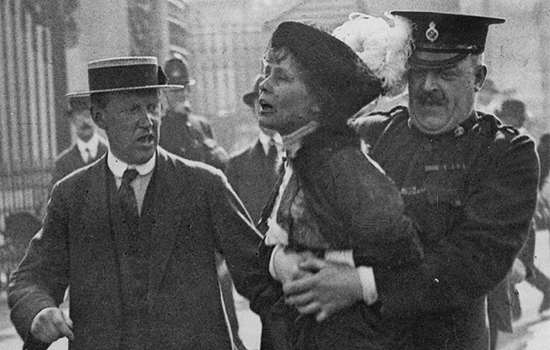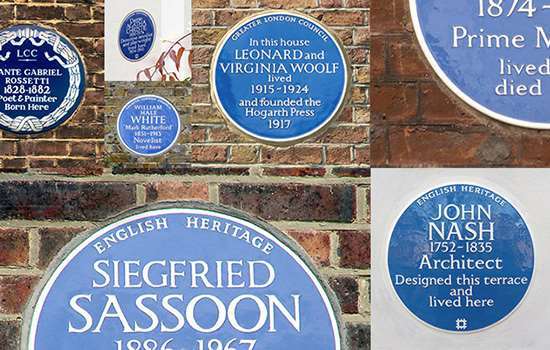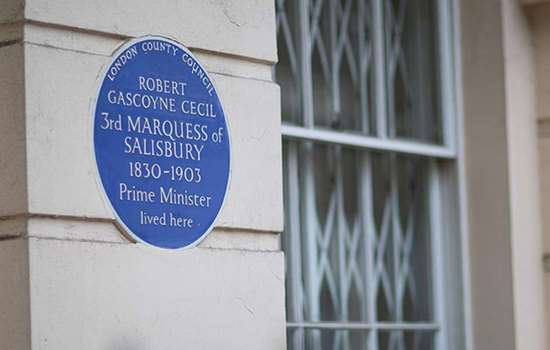MORRIS, Olive (1952–1979)
Plaque erected in 2024 by English Heritage at 121 Railton Road, Brixton, London, SE24 0LR, London Borough of Lambeth
All images © English Heritage
Profession
Activist
Category
Philanthropy and Reform
Inscription
OLIVE MORRIS 1952–1979 Anti-racist, feminist and housing rights activist lived here
Material
Ceramic
Olive Morris was an activist dedicated to speaking out on behalf of oppressed and exploited people. She is commemorated with a blue plaque at 121 Railton Road, Brixton, where she lived as a squatter and hosted study groups in the 1970s.
Activism and arrests
Olive Morris was born in Harewood, Jamaica, on 26 June 1952. In 1961, she and her brother moved to Lavender Hill in south London to join their parents and younger siblings.
In November 1969, aged 17, Morris was arrested in Brixton, bundled into a police van, beaten, racially abused, and held at Brixton Police Station for several hours. Witnessing and intervening at arrests was a community defence borne from years of police harassment, and Morris was part of a group who had gathered when Clement Gomwalk, First Secretary to the Nigerian High Commission, was handcuffed and taken away by police who had not acknowledged his diplomatic number plate.
Morris was charged with assaulting a police officer, which she denied, and sentenced to three months’ imprisonment, suspended for three years. Her mother denounced the prejudice of this conviction at the hearing and the suspension term was later reduced on appeal.
Around 1969, Morris joined the Youth Section and Sisters’ Collective of the British Black Panther movement, which was founded in 1968 to combat police brutality, and racial, immigrant and class discrimination.
Morris was a founding member of the Brixton Black Women’s Group (BBWG). Accounts vary as to its founding date, as the group had different formations, but in 1970 a study group was formed by women in the British Black Panther movement (including Morris), the Black Liberation Organisation and the Race Today Collective. The BBWG emerged from this, around the time that the British Black Panther movement was disbanding in 1973.
In October–November 1972, Morris was prosecuted with Darcus Howe and Abdul Macintosh after a protest outside the Old Bailey. They demanded and won the right to a fair representation of black people on the jury, and ‘the Old Bailey three’ were acquitted.
Squatting at 121 Railton Road
In the winter of 1972–3, Morris squatted with Liz Obi at 121 Railton Road. Squatting – moving into an empty property without the owner’s consent – provided a solution to the housing crisis in Brixton during this period, which was particularly hard for black people.
The three-storey end of terrace house was built around 1870, and by 1881 its ground floor was in use as a grocer's shop. By 1940, until the time it was squatted, it was a laundry. The entrance to the flats above is on the side return in Chaucer Road.
The 121 squat is widely seen as the first successful squatting of a private property in Lambeth. Morris and Obi survived several illegal eviction attempts, and it was almost certainly outside this address that Morris was photographed remonstrating with the police.
Once, Morris and Obi returned to the flat to find themselves barricaded out by men claiming to be acting with police permission. Another time, they were faced with police officers supporting a gang of men who attempted to evict them. The police reportedly pretended to be unaware of the law, which stated that squatters cannot be evicted without a court order.
Railton Road activism
Morris helped others in housing need and became a formidable figure in the 1970s Brixton squat movement. Her photograph appeared on the cover of the Squatting News Bulletin and the Squatters’ Handbook. The squats were a centre for radical politics, direct action and alternative lifestyles and the black women’s study group met at the 121 flat.
Eventually, prompted by legal steps taken by the landlord, Morris and Obi left for a new squat in a council-owned property at 65 Railton Road, where the women’s study group and BBWG continued to meet, and Morris remained part of the Railton Road squat scene.
121 Railton Road continued to be a hub of political activity. At some point after she and Obi moved out, Morris helped other groups, including some of the women’s study group and those who set up Sabarr, a radical self-help bookshop and community space, to re-squat the property. It must be for this reason that Morris and Obi are listed in the electoral registers there in 1974 and 1975.
From the 1980s the 121 Centre became the address of Brixton Squatters Aid and other radical and anarchist organisations. At its final eviction in 1999, it was said to have been the longest-running squat in Britain.
International campaigning
Morris’s campaigning included opposition to the Vietnam War, and support for the liberation of Mozambique, South Africa and Zimbabwe, and of workers’ movements in the Caribbean. In 1974, she began a social science degree at Manchester University. There she joined the Manchester Black Women’s Co-operative and the Black Women’s Mutual Aid Group.
Morris visited Italy and Northern Ireland in 1976 and in 1977 travelled to China with a group of students on a trip organised by the Society for Anglo-Chinese Understanding. She wrote an article about China’s role in anti-imperialist struggles, published in Speak Out!, the Brixton Black Women’s Group newsletter. With Stella Dadzie and others, she founded the Organization of Women of African and Asian Descent (OWAAD) in 1978.
Return to Brixton
Morris returned to Brixton and continued to write. Her article with her partner Mike McColgan, ‘Has the Anti-Nazi League got it right on racism?’, criticised the League’s approach to racism in Britain, which Morris and McColgan argued overlooked institutional racism in systems including the police, schools, local government and trade unions.
The Brixton Ad-Hoc Committee against Police Repression was based at Morris’s 2 Talma Road squat. After graduating from Manchester in 1978 she worked in Brixton Community Law Centre’s juvenile department, campaigning against the ‘sus’ laws, under which police could arrest anyone they suspected might be about to commit a crime.
Morris became unwell while cycling with McColgan in the Pyrenees in the summer of 1978. She was eventually diagnosed with non-Hodgkin’s lymphoma, and she died, aged 27, on 12 July 1979 in St Thomas’s Hospital, Lambeth. She was buried at Streatham Park Cemetery.
Further reading
- Remembering Olive Collective website
- Emma Allotey, ‘Morris, Olive Elaine (1952–1979)’, Oxford Dictionary of National Biography (2004) (public library subscription required)
- Olive Morris plaque, Nubian Jak Community Trust
- Olive Morris Collection, Lambeth Archives, IV/279


